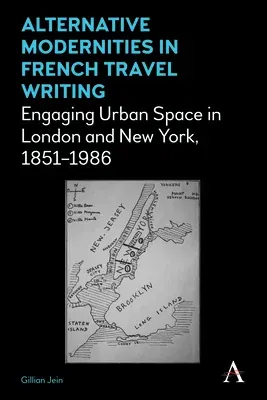Ever since human beings first travelled, cities have constituted
important material and literary destinations. While the city has formed
a key theme for scholars of literary fiction, travellers' writings on
the western city have been somewhat neglected by travel studies.
However, travel writing with its attention to difference provides a rich
source for the study of representational strategies and tactics in
modern urban space. Beginning at the Crystal Palace in 1851 and ending
up in the skyscrapers of NYC, this book analyses the writings of
lesser-known as well as canonical French travel writers, including Paul
Morand, Jean-Paul Sartre, Georges Perec and Jean Baudrillard. Tracing
the work of these writers in London and New York from 1851 to the 1980s,
it contributes to a body of work that analyses travel and travel writing
beyond the Anglophone context, and engages in questions pertaining to
the French imagination of possible meanings for life in the modern city.
One of the central tenets of the book is that, in the way its spaces are
planned, encountered and represented, the city is active in formulating
identities, while the book's guiding question is how analysis of French
travel writing allows us to explore the multiplicity of urban
modernities by engaging with the historical and cultural differences
internal to 'the West'. Bringing together the strands of theory, context
and poetic analysis, the book treats of travel writing as a spatial
practice, one that engages representations of urban space in questions
of nationality, power and legibility. In this way, it opens avenues for
the exploration of urban modernity from a position of alterity, whereby
alternative imaginative geographies of the city come into view.

